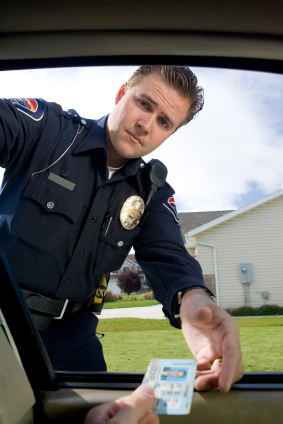
One issue from an arrest for driving under the influence that is confusing is the difference between the summary suspension and the criminal offense of DUI. Many people believe that if you are found not guilty of DUI, then your driver’s license will not be suspended. This is not true.
Unfortunately, the law on DUI in Illinois imposes a double penalty on the offender. The combination of a suspended license and also the penalty for the misdemeanor offense of DUI would seem like double jeopardy. But the courts have said that it this combination is not unconstitutional.
The fact of the matter is that the suspension and the misdemeanor offense of DUI are independent and not related. You could win the suspension and yet lose the DUI. Or vice versa, you could win the DUI but lose the suspension.
The law says that a person’s driving privileges are suspended not because of his or her guilt, but only because that person fails chemical testing or refuses chemical testing. The question of guilt or innocence is irrelevant to the summary suspension.
If a motorist submits to a breath test that indicates an alcohol concentration of 0.08 or higher, that person’s license will be suspended. However, whether the breathalyzer result of 0.08 can be admitted as evidence against the accused in the criminal trial is a different question. That person could be acquitted, but the suspension would remain in place.
The summary suspension is considered a civil penalty. The misdemeanor offense of DUI, on the other hand, has criminal penalties including the possibility of up to one year in the county jail. Because the court is imposing only one criminal penalty, the Illinois Supreme Court has said that this is not double jeopardy. A violation of the double jeopardy rule occurs where a court imposes two criminal penalties for the same act, not the combination of one civil penalty and one criminal penalty.
For illustration, it would be double jeopardy for a person to be sentenced twice for the same act. However, it is not double jeopardy for that person to be sentenced for that act and to suffer a forfeiture of property used in the commission of the crime as well. The loss of property is considered a civil penalty.
This problem is becoming more common, as Illinois law allows the State to seize and forfeit the defendant’s vehicle in certain DUI offenses (such as DUI without proof of insurance, or DUI with a license that is suspended or revoked). These forfeitures are called Article 36 forfeitures, named after the statutory code that allows seizure of property and forfeiture to the State. See 720 ILCS 5/36-1. While my opinion is that these forfeitures amount to double jeopardy, the courts have said they are not.
Basically, state legislators passed the summary suspension law in order to induce people who are arrested for intoxicated driving to submit to a breathalyzer. If the person refuses the breathalyzer, then his license will be suspended for a longer period of time than if he had submitted and blown over the legal limit.
One example of how the two issues are separate would be a DUI offender who refuses all testing. That person’s license will be suspended for refusing the breathalyzer test. Assuming he also refused to perform field sobriety testing, then the evidence that he is guilty of the criminal offense of DUI would be very weak. It would seem likely that a judge or jury would acquit this person of a DUI. However, this would not change the fact that he refused the breathalyzer, and thus his driver’s license would be suspended for the refusal.
That being said, the law provides a mechanism to challenge the statutory summary suspension. The motorist can file a petition to rescind the statutory summary suspension in court. Examine the notice of summary suspension/revocation and on the backside. You can see instructions for how to do so. But it is not advisable to attempt to rescind the statutory summary suspension without the assistance of an attorney.
In any event, it is important to choose an attorney who is knowledgeable and aggressive with regard to defending you in court.

